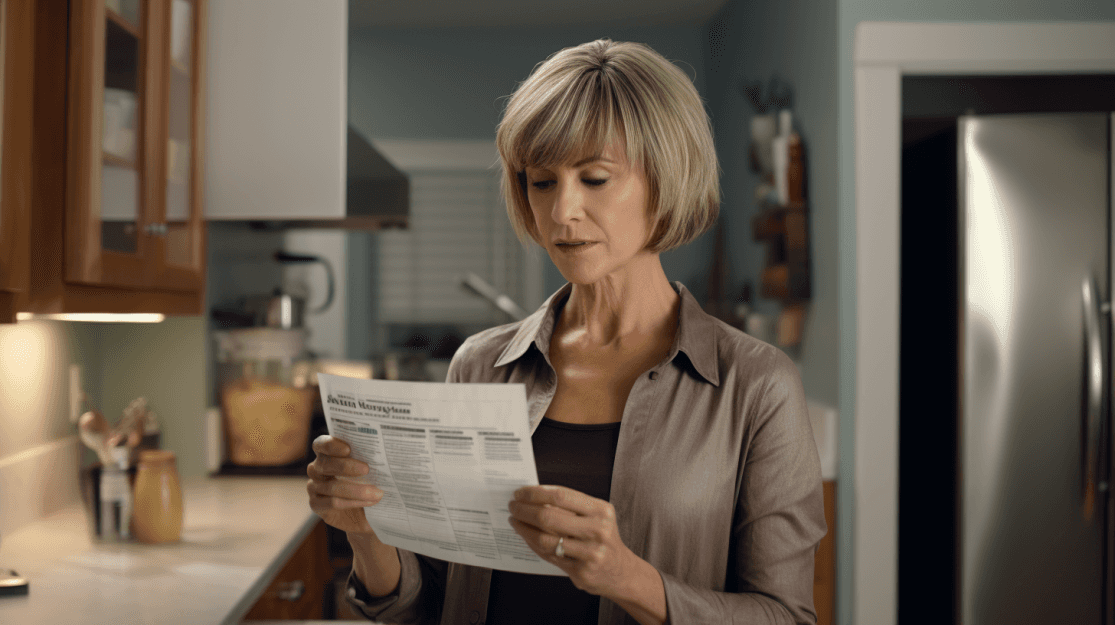
Gastroesophageal Reflux Disorder (GERD)
What is GERD?
GERD is a chronic condition where stomach acid frequently flows back into the esophagus, irritating its lining.
What are common symptoms of GERD?
Heartburn
Regurgitation of food or sour liquid
Chest pain
Difficulty swallowing
Sensation of a lump in the throat
What is GERD caused by?
The primary causes include abnormalities in the lower esophageal sphincter and the presence of a hiatal hernia.
How can GERD be treated?
Treatment options range from lifestyle changes, medications to reduce or block acid production, antacids, and in severe cases, surgery.
Functional Dyspepsia (FD)
What is Functional Dyspepsia?
This disorder is characterized by persistent or recurrent pain or discomfort centered in the upper abdomen.
What are common symptoms of Functional Dyspepsia?
Feeling full too soon while eating
Feeling uncomfortably full after eating
Pain or burning in the upper abdomen
Bloating in the upper abdomen
Nausea
What is Functional Dyspepsia caused by?
The exact cause remains unknown, but factors may include abnormal motility, hypersensitivity to stomach acid, and stress.
How can Functional Dyspepsia be treated?
Treatment approaches include dietary changes, medications to reduce stomach acid, prokinetics, and antidepressants.
Chronic Idiopathic Constipation (CIC)
What is Chronic Idiopathic Constipation?
This refers to chronic constipation that doesn't have a known cause.
What are common symptoms of Chronic Idiopathic Constipation?
Passing fewer than three stools a week
Lumpy or hard stools
Straining to have bowel movements
Feeling as though there's a blockage in the rectum
Feeling as though not all stool has passed
What is Chronic Idiopathic Constipation caused by?
The exact cause is unknown.
How can Chronic Idiopathic Constipation be treated?
Treatment strategies include dietary and lifestyle changes, fiber supplements, stool softeners, over-the-counter and prescription laxatives, and medications that draw water into the intestines.
IBS with Diarrhea (IBS-D)
What is IBS-D?
A subtype of IBS where the predominant symptom is frequent loose or watery stools.
What are common symptoms of IBS-D?
Diarrhea
Abdominal pain or discomfort
Urgency to have a bowel movement
Bloating and gas
Mucus in the stool
What is IBS-D caused by?
The exact cause is unknown, but factors may include gut-brain interaction, infections, changes in gut flora, and food intolerances.
How can IBS-D be treated?
Treatment options include dietary modifications (like the low FODMAP diet), medications to reduce diarrhea (e.g., loperamide), antispasmodic agents, probiotics, and cognitive-behavioral therapy.
IBS with Constipation (IBS-C)
What is IBS-C?
A subtype of IBS where the predominant symptom is infrequent bowel movements with hard or lumpy stools.
What are common symptoms of IBS-C?
Constipation
Abdominal pain or discomfort
Bloating and gas
Straining during bowel movements
Feeling of incomplete evacuation
What is IBS-C caused by?
The exact cause is unknown, but factors may include gut-brain interaction, changes in gut flora, and food intolerances.
How can IBS-C be treated?
Treatment strategies include dietary modifications (like increasing fiber intake), laxatives (e.g., polyethylene glycol), medications to increase fluid in the intestines (e.g., lubiprostone), probiotics, and cognitive-behavioral therapy.
Mixed IBS (IBS-M) or IBS with Alternating Constipation and Diarrhea
What is IBS-M?
A subtype of IBS where patients experience both constipation and diarrhea.
What are common symptoms of IBS-M?
Alternating diarrhea and constipation
Abdominal pain or discomfort
Bloating and gas
Mucus in the stool
Feeling of incomplete evacuation
What is IBS-M caused by?
The exact cause is unknown, but factors may include gut-brain interaction, changes in gut flora, and food intolerances.
How can IBS-M be treated?
Treatment options include dietary modifications tailored to the predominant symptom at the time, medications targeting the predominant symptom, probiotics, and cognitive-behavioral therapy.
Unsubtyped IBS (IBS-U)
What is IBS-U?
A subtype of IBS where patients don't fit into the other categories and don't have a consistent pattern of constipation or diarrhea.
What are common symptoms of IBS-U?
Abdominal pain or discomfort
Bloating and gas
Variable bowel habits
What is IBS-U caused by?
The exact cause is unknown, but factors may include gut-brain interaction, changes in gut flora, and food intolerances.
How can IBS-U be treated?
Treatment strategies include dietary modifications, medications tailored to the specific symptoms experienced, probiotics, and cognitive-behavioral therapy.
Lactose Intolerance
What is Lactose Intolerance?
A condition where the body can't easily digest lactose, a sugar found in milk and dairy products.
What are common symptoms of Lactose Intolerance?
Diarrhea
Nausea, and sometimes vomiting
Abdominal cramps
Bloating
Gas
What is Lactose Intolerance caused by?
Deficiency of lactase, an enzyme produced in the small intestine.
How can Lactose Intolerance be treated?
Avoiding or reducing the amount of dairy products in the diet, lactase supplements, and consuming lactose-free products.
Small Intestinal Bacterial Overgrowth (SIBO)
What is SIBO?
A condition where there is an abnormal increase in the overall bacterial population in the small intestine.
What are common symptoms of SIBO?
Abdominal pain or cramps
Diarrhea
Bloating
Gas
Weight loss
What is SIBO caused by?
Physical abnormalities of the small intestine, a decrease in the movement of the small intestine, and certain medications.
How can SIBO be treated?
Antibiotics, dietary changes, and treating underlying conditions.
Celiac Disease
What is Celiac Disease?
An immune reaction to eating gluten, a protein found in wheat, barley, and rye.
What are common symptoms of Celiac Disease?
Diarrhea
Fatigue
Weight loss
Bloating and gas
Abdominal pain
What is Celiac Disease caused by?
Immune response to ingestion of gluten in genetically predisposed individuals.
How can Celiac Disease be treated?
Strict gluten-free diet.
Non-Celiac Gluten Sensitivity
What is Non-Celiac Gluten Sensitivity?
A condition where individuals experience symptoms similar to those of celiac disease after consuming gluten-containing foods but don't test positive for celiac disease or a wheat allergy.
What are common symptoms of Non-Celiac Gluten Sensitivity?
Abdominal pain
Bloating
Diarrhea or constipation
Headaches
Fatigue
What is Non-Celiac Gluten Sensitivity caused by?
Unknown, but it's not an autoimmune response like celiac disease.
How can Non-Celiac Gluten Sensitivity be treated?
Gluten-free diet.
Gallstones
What is Gallstones?
Hardened deposits in the gallbladder, a small organ under the liver.
What are common symptoms of Gallstones?
Sudden and rapidly intensifying pain in the upper right portion of the abdomen
Sudden and rapidly intensifying pain in the center of the abdomen, just below the breastbone
Back pain between the shoulder blades
Pain in the right shoulder
Nausea or vomiting
What are Gallstones caused by?
Imbalance in the substances that make up bile.
How can Gallstones be treated?
Surgery to remove the gallbladder, medications to dissolve gallstones.
Diverticulitis
What is Diverticulitis?
Inflammation or infection of small pouches (diverticula) that can form in the walls of the colon.
What are common symptoms of Diverticulitis?
Abdominal pain (usually on the left side)
Fever and chills
Bloating and gas
Diarrhea or constipation
Nausea and sometimes vomiting
What is Diverticulitis caused by?
Formation of diverticula that become inflamed or infected.
How can Diverticulitis be treated?
Antibiotics, pain relievers, dietary changes, surgery in severe cases.
Peptic Ulcers
What is Peptic Ulcers?
Sores that develop on the inside lining of the stomach, upper small intestine, or lower esophagus.
What are common symptoms of Peptic Ulcers?
Burning stomach pain
Feeling of fullness or bloating
Fatty food intolerance
Heartburn
Nausea
What are Peptic Ulcers caused by?
H. pylori bacteria and long-term use of NSAIDs.
How can Peptic Ulcers be treated?
Proton pump inhibitors, antibiotics, antacids, and lifestyle changes.
Gastritis
What is Gastritis?
Inflammation of the stomach lining.
What are common symptoms of Gastritis?
Upper abdominal pain or discomfort
Nausea or vomiting
Feeling of fullness in the upper abdomen after eating
Loss of appetite
Indigestion
What is Gastritis caused by?
H. pylori infection, long-term use of NSAIDs, and excessive alcohol consumption.
How can Gastritis be treated?
Proton pump inhibitors, antacids, antibiotics, and avoiding irritants.
Appendicitis
What is Appendicitis?
Inflammation of the appendix.
What are common symptoms of Appendicitis?
Sudden pain that begins on the right side of the lower abdomen
Sudden pain that begins around the navel and shifts to the right side of the lower abdomen
Nausea and vomiting
Loss of appetite
Low-grade fever
What is Appendicitis caused by?
Blockage inside of the appendix.
How can Appendicitis be treated?
Surgical removal of the appendix.
Gastroparesis
What is Gastroparesis?
A condition that affects the stomach muscles and prevents proper stomach emptying.
What are common symptoms of Gastroparesis?
Nausea
Vomiting undigested food
Early fullness during a meal
Small Intestinal Bacterial Overgrowth (SIBO)
What is SIBO?
A condition where there is an abnormal increase in the overall bacterial population in the small intestine.
What are common symptoms of SIBO?
Abdominal pain or cramps
Diarrhea
Bloating
Gas
Weight loss
What is SIBO caused by?
Physical abnormalities of the small intestine, a decrease in the movement of the small intestine, and certain medications.
How can SIBO be treated?
Antibiotics, dietary changes, and treating underlying conditions.
Celiac Disease
What is Celiac Disease?
An immune reaction to eating gluten, a protein found in wheat, barley, and rye.
What are common symptoms of Celiac Disease?
Diarrhea
Fatigue
Weight loss
Bloating and gas
Abdominal pain
What is Celiac Disease caused by?
Immune response to ingestion of gluten in genetically predisposed individuals.
How can Celiac Disease be treated?
Strict gluten-free diet.
Non-Celiac Gluten Sensitivity
What is Non-Celiac Gluten Sensitivity?
A condition where individuals experience symptoms similar to those of celiac disease after consuming gluten-containing foods but don't test positive for celiac disease or a wheat allergy.
What are common symptoms of Non-Celiac Gluten Sensitivity?
Abdominal pain
Bloating
Diarrhea or constipation
Headaches
Fatigue
What is Non-Celiac Gluten Sensitivity caused by?
Unknown, but it's not an autoimmune response like celiac disease.
How can Non-Celiac Gluten Sensitivity be treated?
Gluten-free diet.
Gallstones
What is Gallstones?
Hardened deposits in the gallbladder, a small organ under the liver.
What are common symptoms of Gallstones?
Sudden and rapidly intensifying pain in the upper right portion of the abdomen
Sudden and rapidly intensifying pain in the center of the abdomen, just below the breastbone
Back pain between the shoulder blades
Pain in the right shoulder
Nausea or vomiting
What are Gallstones caused by?
Imbalance in the substances that make up bile.
How can Gallstones be treated?
Surgery to remove the gallbladder, medications to dissolve gallstones.
Diverticulitis
What is Diverticulitis?
Inflammation or infection of small pouches (diverticula) that can form in the walls of the colon.
What are common symptoms of Diverticulitis?
Abdominal pain (usually on the left side)
Fever and chills
Bloating and gas
Diarrhea or constipation
Nausea and sometimes vomiting
What is Diverticulitis caused by?
Formation of diverticula that become inflamed or infected.
How can Diverticulitis be treated?
Antibiotics, pain relievers, dietary changes, surgery in severe cases.
Peptic Ulcers
What are Peptic Ulcers?
Sores that develop on the inside lining of the stomach, upper small intestine, or lower esophagus.
What are common symptoms of Peptic Ulcers?
Burning stomach pain
Feeling of fullness or bloating
Fatty food intolerance
Heartburn
Nausea
What are Peptic Ulcers caused by?
H. pylori bacteria and long-term use of NSAIDs.
How can Peptic Ulcers be treated?
Proton pump inhibitors, antibiotics, antacids, and lifestyle changes.
Gastritis
What is Gastritis?
Inflammation of the stomach lining.
What are common symptoms of Gastritis?
Upper abdominal pain or discomfort
Nausea or vomiting
Feeling of fullness in the upper abdomen after eating
Loss of appetite
Indigestion
What is Gastritis caused by?
H. pylori infection, long-term use of NSAIDs, and excessive alcohol consumption.
How can Gastritis be treated?
Proton pump inhibitors, antacids, antibiotics, and avoiding irritants.
Appendicitis
What is Appendicitis?
Inflammation of the appendix.
What are common symptoms of Appendicitis?
Sudden pain that begins on the right side of the lower abdomen
Sudden pain that begins around the navel and shifts to the right side of the lower abdomen
Nausea and vomiting
Loss of appetite
Low-grade fever
What is Appendicitis caused by?
Blockage inside of the appendix.
How can Appendicitis be treated?
Surgical removal of the appendix.
Gastroparesis
What is Gastroparesis?
A condition that affects the stomach muscles and prevents proper stomach emptying.
What are common symptoms of Gastroparesis?
Nausea
Vomiting undigested food
Early fullness during a meal
Weight loss
Abdominal bloating
What is Gastroparesis caused by?
Vagus nerve damage, diabetes, and certain medications.
How can Gastroparesis be treated?
Dietary changes, medications, and devices like a gastric pacemaker.
Inflammatory Bowel Disease (IBD)
What is IBD?
An umbrella term used to describe disorders that involve chronic inflammation of the digestive tract.
What are common symptoms of IBD?
Diarrhea
Abdominal pain and cramping
Blood in the stool
Fatigue
Weight loss
What is IBD caused by?
Immune system malfunction.
How can IBD be treated?
Anti-inflammatory drugs, immune system suppressors, and in some cases, surgery.
Food Allergies
What are Food Allergies?
An immune system reaction that occurs after eating a certain food.
What are common symptoms of Food Allergies?
Hives, itching, or eczema
Swelling of the lips, face, tongue, and throat
Wheezing or nasal congestion
Abdominal pain or diarrhea
Dizziness or lightheadedness
What are Food Allergies caused by?
Immune system reaction to certain proteins in food.
How can Food Allergies be treated?
Avoiding allergenic foods, antihistamines, and epinephrine for severe reactions.
Intestinal Parasites
What is Intestinal Parasites?
Organisms that live in the intestines and consume nutrients from their hosts.
What are common symptoms of Intestinal Parasites?
Abdominal pain
Diarrhea or constipation
Nausea or vomiting
Gas or bloating
Fatigue
What are Intestinal Parasites caused by?
Consuming contaminated food or water and poor sanitation.
How can Intestinal Parasites be treated?
Antiparasitic medications.
Pancreatitis
What is Pancreatitis?
Inflammation of the pancreas.
What are common symptoms of Pancreatitis?
Upper abdominal pain
Abdominal pain that radiates to the back
Nausea and vomiting
Fever
Rapid pulse
What is Pancreatitis caused by?
Alcoholism, gallstones, and certain medications.
How can Pancreatitis be treated?
Hospitalization, fasting, pain management, and intravenous (IV) fluids.
Colon Cancer
What is Colon Cancer?
A type of cancer that begins in the large intestine (colon).
What are common symptoms of Colon Cancer?
Changes in bowel habits
Rectal bleeding or blood in the stool
Persistent abdominal discomfort
Weakness or fatigue
Unexplained weight loss
What is Colon Cancer caused by?
Mutations in DNA of colon cells.
How can Colon Cancer be treated?
Surgery, radiation therapy, chemotherapy, and targeted drug therapy.
Stomach Cancer
What is Stomach Cancer?
A cancer that begins in the cells of the stomach.
What are common symptoms of Stomach Cancer?
Fatigue
Feeling bloated after eating
Severe heartburn or indigestion
Stomach pain
Persistent nausea or vomiting
What is Stomach Cancer caused by?
Mutation in the DNA of stomach cells.
How can Stomach Cancer be treated?
Surgery, chemotherapy, radiation therapy, targeted drugs, and immunotherapy.
Your 14-Day Journey to Gut Health Begins Now!
Don't let digestive issues hold you back any longer—take the first step towards a healthier, happier you today






